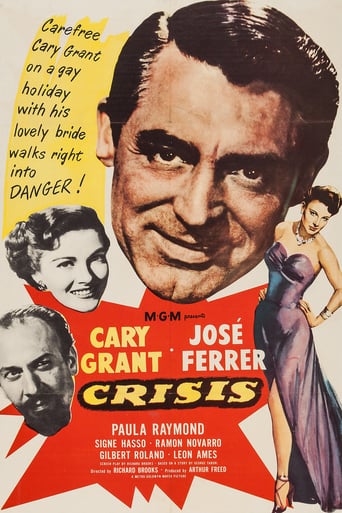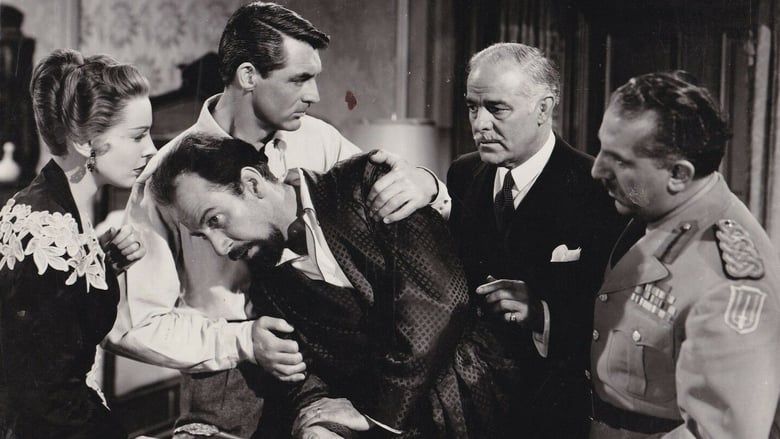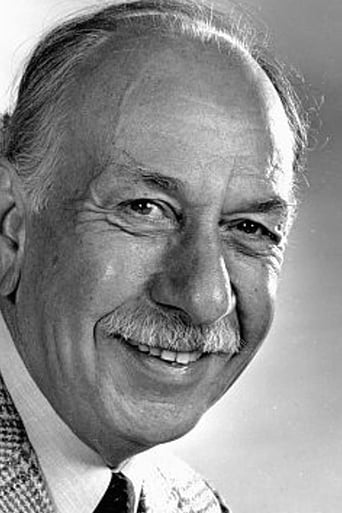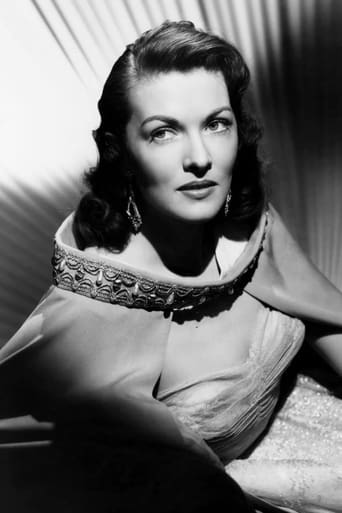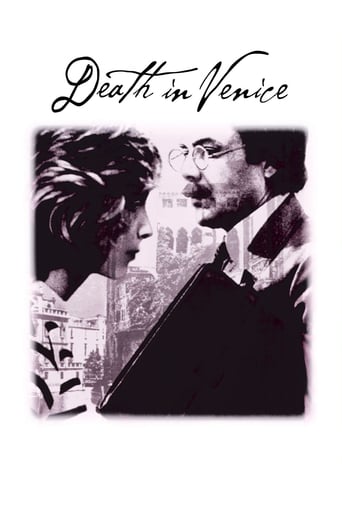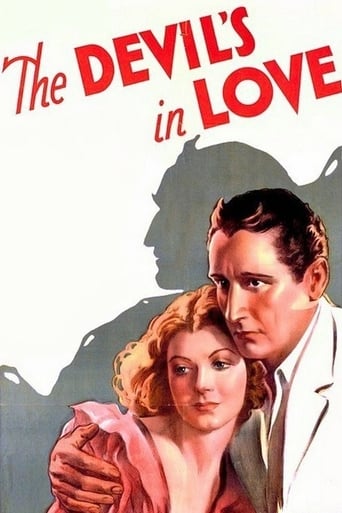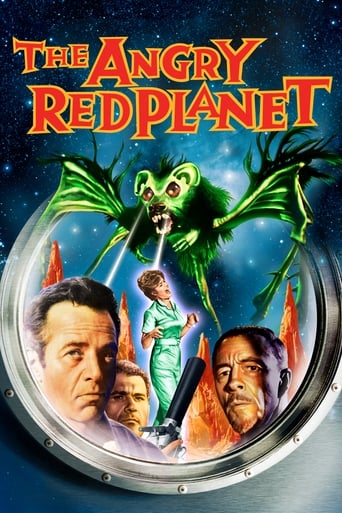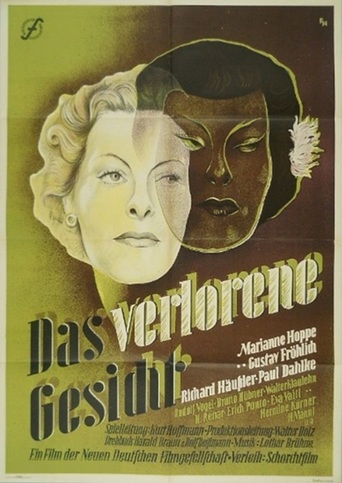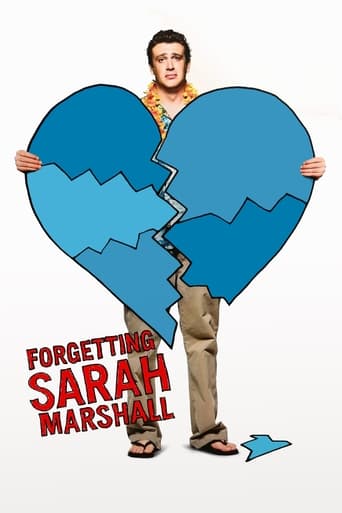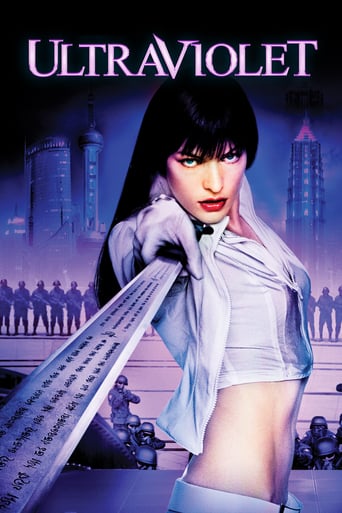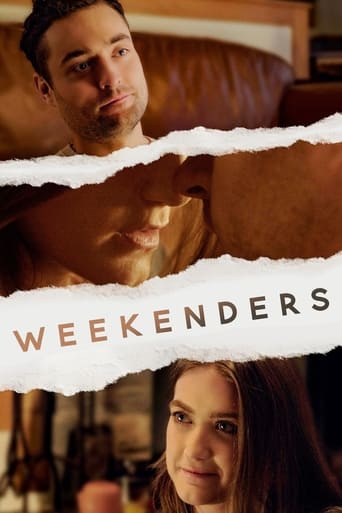Crisis (1950)
An American doctor gets caught in the middle of a revolution when he's forced to operate on a South American dictator.
Watch Trailer
Cast


Similar titles
Reviews
Sick Product of a Sick System
Memorable, crazy movie
One of the worst ways to make a cult movie is to set out to make a cult movie.
Actress is magnificent and exudes a hypnotic screen presence in this affecting drama.
Lightweight leading man Cary Grant decided to try playing a serious role for a change in writer & director Richard Brooks' first directorial effort "Crisis" about a gifted surgeon who agrees to operate on a notorious South American dictator who suffers from a brain tumor. Nothing about "Crisis" is remotely like anything that Grant had done before in Hollywood. Humor is not used to relieve the tension or the drama in this straightforward medical yarn. Brooks adapted George Tabori's short story "The Doubters," and he pulls few punches realistic yarn. It should come as no surprise that Latin Americans didn't like approve of this controversial movie. Ultimately, Grant's stab of being serious amounted to a flop, despite the poster ads that proclaimed "Carefree Cary Grant on a gay vacation with his lovely bride walks right into Danger!" The arrogant dictator, Raoul Farrago (José Ferrer of "The Shrike"), insists that the good doctor operate even though several more qualified surgeons are available to treat him. As it turns out, none of those doctors want to save Farrago. You see, Dr. Eugene Norland Ferguson (Cary Grant of "Gunga Din") and his wife Helen (Paula Raymond of "The Duchess of Idaho") are on holiday from their ship when they find themselves arrested by Farrago's armed enforcer Colonel Adragon (Ramon Navarro of the silent "Ben-Hur") who doesn't take no for an answer. Meantime, a representative from an oil company, Sam Proctor (Leon Ames of "Lady in the Lake") advises the Fergusons that he go through with the dangerous operation. Ferguson doesn't want his wife around if anything goes wrong. She boards a train with an armed escort to leave the country. Earlier, Ferguson and his wife had dined out in a restaurant where the subverves hang their hats, the doctor meets the ring leader of the opposition, Roland Gonzales (Gilbert Roland of "Beneath the 12 Mile Reef") tries to convince Ferguson to botch the operation. Truthful to his oath as a doctor, Ferguson goes ahead with the operation. Farrago survives but ignores his physician's orders. The ending is appropriate to this Metro-Goldwyn-Mayer social consciousness drama and it should come as no surprise what happens to the dreaded Farrago. The ending has a touch of irony to it. "Crisis" lives up to its title, and Brooks never lets the tension slacken throughout this taut thriller. Reportedly, Grant threw himself into the role and approached genuine doctors who showed him a thing or two about the surgeon's profession.
It's always nice to discover a "new" Cary Grant movie. As I watched this one, I really liked it. As the movie begins, a renowned American neurosurgeon, Dr. Eugene Norland Ferguson (Cary Grant) and his wife, Helen (Paula Raymond) are on vacation in an unidentified Latin American country. When local civil violence breaks out at a jai alai game they are attending, they try to avoid it. However during the upheaval, they are kidnapped by the local police and taken to the mansion of the country's military dictator, Raoul Farrago (Jose Ferrer). Though they are welcomed and treated well by Raoul's wife (Signe Hasso), they are clearly captives of the government and become pawns of a civil war between the country's dictator and its rebels. Dr. Ferguson determines that Farrago has a brain tumor that needs to be removed. But, he has no surgical team or equipment with with to operate, and Farrago's entourage forbids him or his wife from leaving the mansion or moving Farrago to any hospital, for fear of the local rebels' wish to kill Farrago. Ferguson asks that his wife be moved to safety, and his wish is granted. But, the rebels soon grab her and demand that Ferguson let Farrago die or kill him on the operating table. However, as a physician, he cannot allow himself to be swayed by political upheaval, not even to save his wife's life. The movie continues to its conclusion, with tension in the operating room and tension on the streets of the Latin American capital.
Surgeon Cary Grant and his wife Paula Raymond are vacationing in some South American country when they are kidnapped by the military police and taken into the mountains. There they are told the country's dictator, José Ferrer, is in need of an operation to remove a tumor. Grant reluctantly agrees but then his wife is kidnapped by revolutionaries who would like to see Ferrer dead.Hollywood types have always had a fascination with the politics of Latin American countries, their dictators and rebels. This was especially true in the 1950s. So I'm not surprised this was made. I'm also not surprised it flopped at the box office. It's the directorial debut of Richard Brooks, a director who I believe made it farther having friends in high places than any appreciable degree of talent. But I suppose that's true of many directors, actors, etc. even to this day. Grant does fine here but the film is so serious and monotone that it removes many chances for Grant's charisma and personality to shine through. There are a couple of quips here and there that stand out against the rest of the movie's drabness. Paula Raymond is pretty but wooden. José Ferrer is very stagy. Signe Hasso, Leon Ames, Gilbert Roland, and Ramon Novarro are all fine in supporting parts. It's not a bad movie of its type, just ordinary and dull. Not the kind of movie a Cary Grant fan will likely expect.
Renown brain surgeon, vacationing in an unnamed Latin American country with his wife, is stopped from leaving by the president's wife and minions after the savage dictator falls ill. The doctor reluctantly agrees to operate, not knowing that his spouse has been kidnapped by the Revolution, who want the leader's head on a plate. Although he stays in a somber low-key throughout (with the exception of a comic teeth-brushing bit), Cary Grant is just as interesting in a dramatic film as he is in more lighthearted fare--though the lack of offhand humor makes itself felt. Debuting director Richard Brooks, who also adapted the script from George Tabori's story, provides a steady pace which is neither gripping nor dawdling, and he handles his actors efficiently enough. A curious vehicle for its star and studio (MGM), the picture fails to unnerve us with its staged violence (which seems derivative of Fritz Lang) and angry, shouting mobs. What it does do well is present two important men on opposing sides reaching a temporary truce through medicine and illness. In this regard, "Crisis" is unusual and occasionally effective. ** from ****

